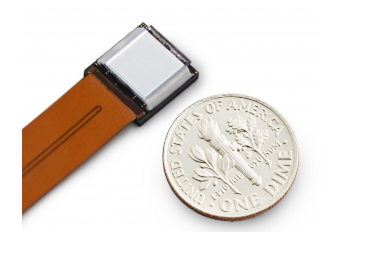In his recent podcast episode, AR/VR optical expert Karl Guttag said that various sources have confirmed the acquisition of Compounds Photonics, a Micro LED/LCOS solution provider in the US, by Snap (parent company of Snapchat). He also presumed that Snap plans to adopt LCOS technology in its AR glasses.
Founded in 2007, Compound Photonics specializes in providing compact high-resolution microdisplay solutions for AR and MR scenarios. The company offers products and services including Micro LED/LCOS displays, optical engine reference designs and microdisplay development kits.
The solution provider has launched a 0.34-inch LCOS microdisplay lineup, the CP2K234, featuring 3.015μm pixels, a 2048×2048 resolution, 1:1 aspect ratio and retina resolution (60 pixels/degree) when combined with its 50° wide field-of-view waveguides.

Image credit: Compound Photonics
Regarding Micro LED, Compound Photonics had once partnered with microdisplay developer Plessey Semiconductors and announced that it had lit up its first 0.26-inch fully addressable Micro LED display module in February 2020. One month later, however, Meta (formerly Facebook) bought every Micro LED product license from Plessey. Since then, there has been no news about its Micro LED products.
Guttag held that Snap bought Compound Photonics because of the LCOS technologies. Although it requires a few more years for Micro LED waveguide solutions to enter the consumer market, as Guttag suggested, Micro LED will remain a focus of Snap in the long run.
Additionally, Guttag indicated that as Meta, Snap’s major social media competitor, has been striving for VR/AR device development recently, Snap is prompted to take action to develop its own AR headset.
Last May, Snap spent $500 million or so to acquire WaveOptics, an AR waveguide display maker (the social media company’s largest deal in history). Later, it announced the AR glasses Spectacles 3 featuring 3D waveguide displays provided by WaveOptics that can dynamically adjust to 2000 nits of brightness with a 26.3-degree field of view. Snap also developed a series of apps for the latest AR glasses, including the AR Super Mario game, concerts, dance lessons and drawing tools. (Compiled by Irving from LEDinside)












